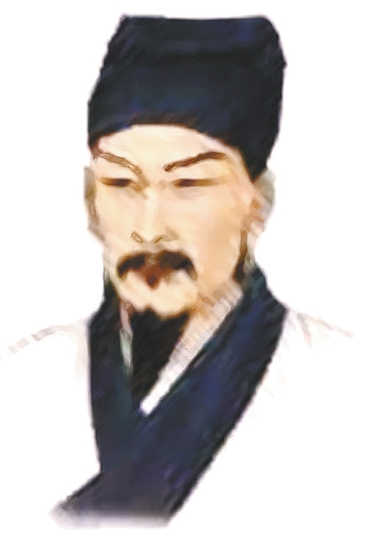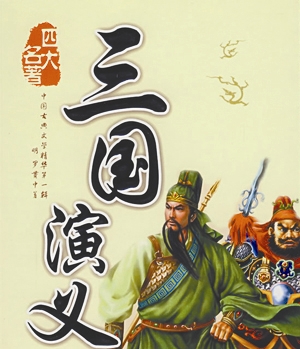|


While there has always been doubt about the author of “Romance of the Three Kingdoms,” a Hubei University professor published a thesis stating that “Luo Guanzhong” was most likely the pseudonym of Jinhua intellectual Jiang Daqi of the Ming Dynasty (1368-1644).
IN all published history textbooks used in Chinese high schools, the author of “Romance of the Three Kingdoms” — one of China’s four great novels — is known as Luo Guanzhong.
While there has always been doubt about this among literary researchers, Zhang Guoguang, professor of Chinese literature with Hubei University, published a thesis stating that “Luo Guanzhong” was most likely the pseudonym of Jinhua (in Zhejiang Province) intellectual Jiang Daqi of the Ming Dynasty (1368-1644).
Little is known about the person named Luo Guanzhong, and records of his background are contradictory. Some said he was from Taiyuan in Shanxi Province, some say he was a Zhejiang native, and others say he was from Dongping in Shandong. There is also confusion about the time period he lived in.
Feng Qiyong, renowned literature researcher and former Renmin University professor, concluded that Luo lived 84 years between 1295 and 1379. His research, based on “Lu Gui Bu Xu Pian,” a Ming Dynasty book introducing authors and their representative works, has been widely accepted in Chinese literary research circles.
However, introducing Luo as the author of a few drama pieces, riddles and poems, the ancient book did not mention a word about Luo’s novels.
Moreover, there are anachronisms in the poems quoted in “Romance,” between weaponry mentioned in the book and Luo’s living period. Luo obviously lived before certain implements mentioned in “Romance” were invented.
There are six different opinions on the real identity of the “Romance” author. Among them, Zhang’s opinion has the most support.
“Jiang Daqi, who lived between 1455 and 1530, was most likely the author,” Zhang wrote in his research.
Jiang, secretary to Xunxian County in Damingfu (today’s Hebei Province), wrote the prologue to the oldest edition of “Romance,” which was published in the middle of the Ming Dynasty.
According to Zhang’s research, Jiang wrote the prologue in the year 1522. “A century had passed since Luo’s death. If Luo were the author, why hadn’t there been an earlier version?” Zhang questioned.
If the manuscript had been hidden somewhere for a century, how did it fall into Jiang’s hands? If that were what really happened, Jiang should have explained how he came by the book in his prologue.
In his prologue, Jiang wrote: “When Luo finished the book, many rushed to get a copy so that they could read about the rise and fall of the Three Kingdoms and the anecdotes of its heroes.”
If that were true, why hadn’t there been a single word commenting on “Romance” before Jiang?
In the later part of his prologue, Jiang commented on the themes and figures in the book in the manner an author traditionally did with his own work.
While some questioned why Jiang did not state that he himself was the author in the prologue, Wang Yan with Shandong Normal University provided a reasonable explanation.
“In the Ming Dynasty when Jiang lived, novels were believed to be vulgar and inferior to poems and essays,” the professor said. “Those in the higher social ranks would fear to acknowledge their copyright if they had written a novel.”
Not everyone would agree with Zhang. Gong Jianfeng, a researcher with Zhejiang Normal University, said there was no firm evidence proving that Jiang was the author.
“Jiang’s work in polishing and editing the masterpiece is highly appraisaled in the research circle,” he said. “But that didn’t mean he wrote the book. Based on historical facts and folklore, ‘Romance’ had been created and enriched over a long period. In this sense, I’d rather say that the book is a piece of work by the many anonymous people who have contributed to it.”
Anyway, Jiang’s work could not be denied in helping “Romance” become a treasure of Chinese literature, Gong acknowledged. (Li Dan)
|

